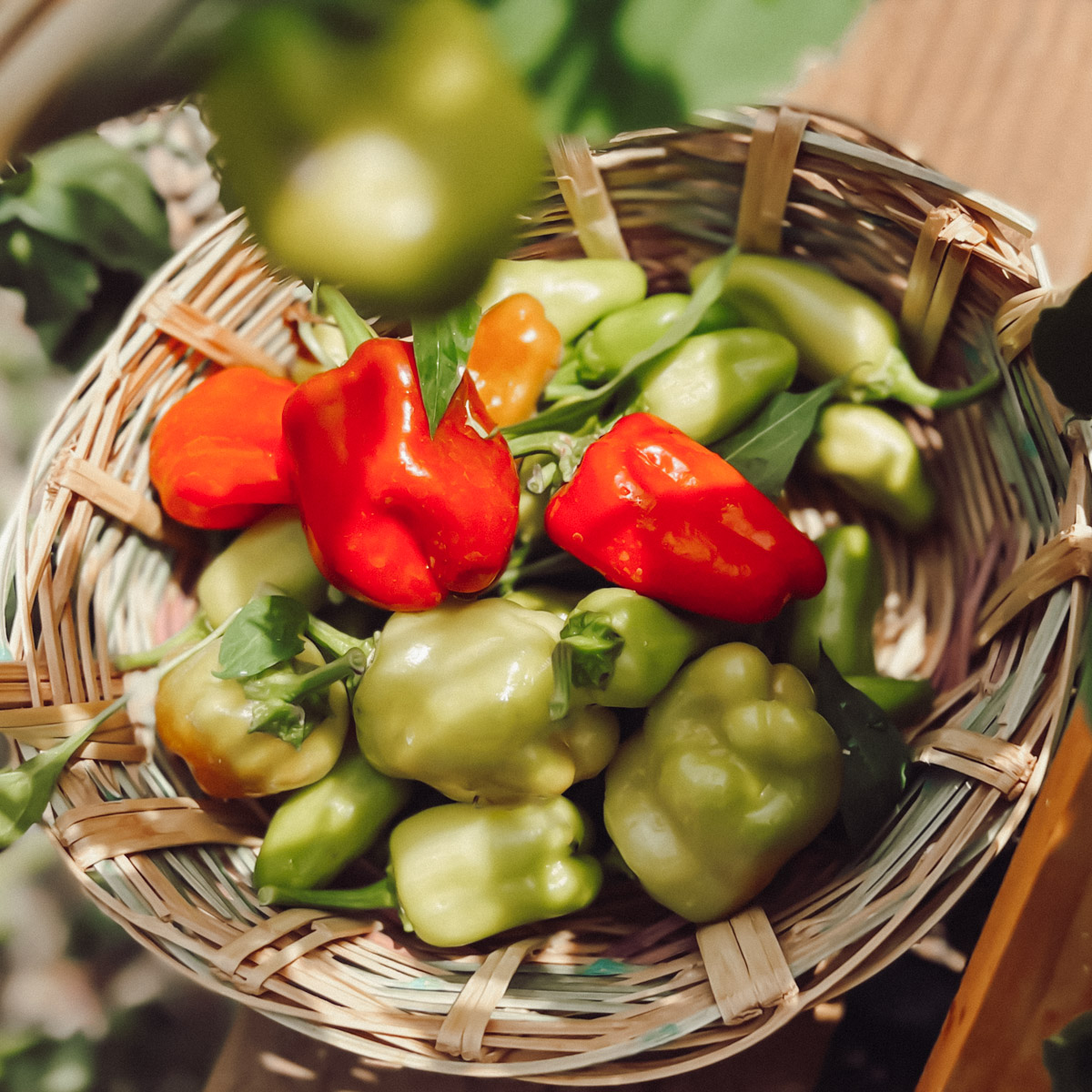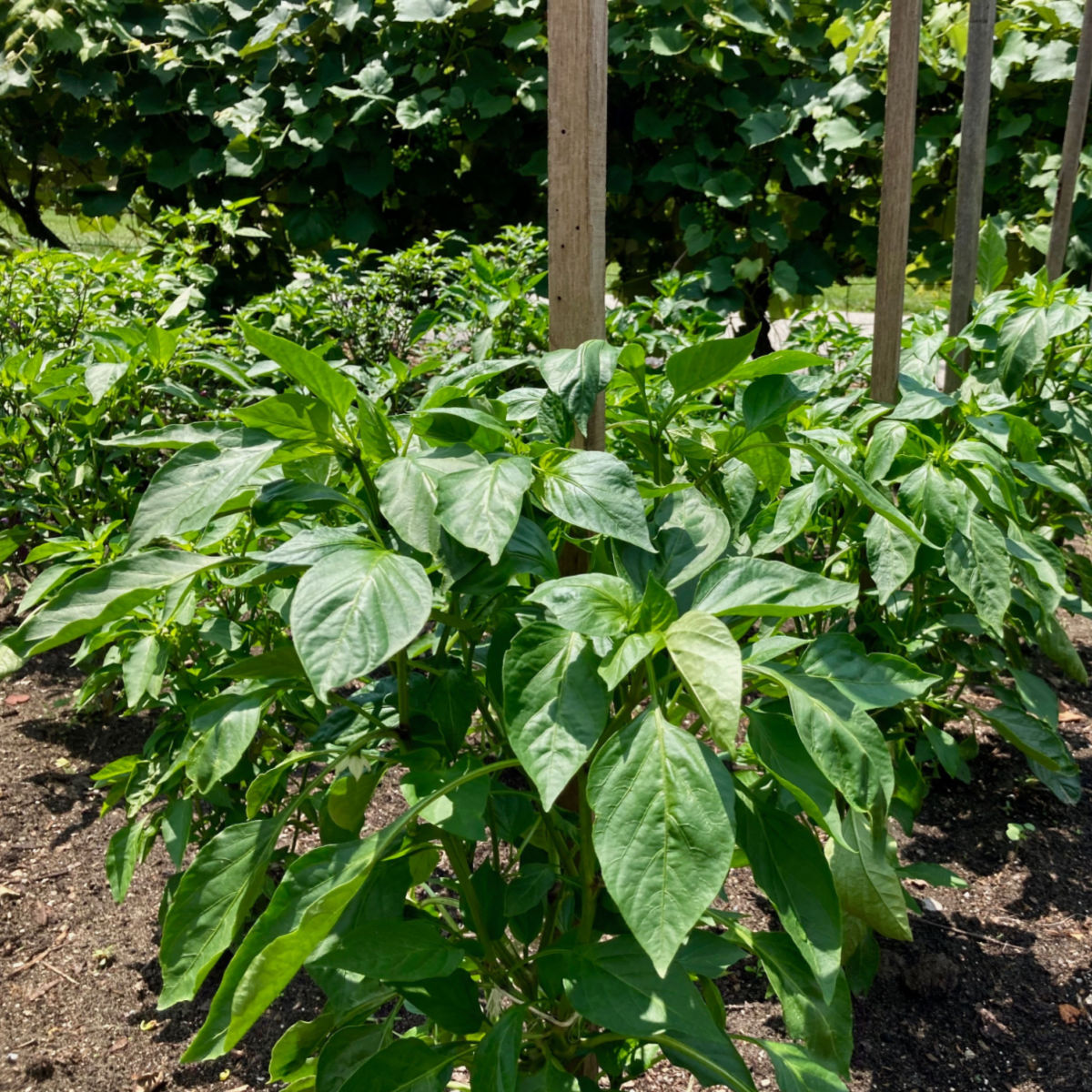Best Fertilizers for Peppers: Increase Development and Taste Naturally
Wiki Article
Organic Vs. Synthetic Fertilizers: Which Is Best for Nurturing Healthy Pepper Plants?
In the world of nurturing healthy and balanced pepper plants, the selection between organic and synthetic plant foods stands as a pivotal choice with far-ranging implications. While both options goal to offer crucial nutrients to support plant growth, the nuances of their effect on the dirt, plant wellness, and the atmosphere spark a discussion that echoes throughout the gardening area. Recognizing the unique advantages and prospective risks of each plant food type is crucial for pepper farmers seeking to optimize their returns while preserving an eco-conscious and lasting strategy.Advantages of Organic Plant Foods
Organic plant foods supply an environmentally-friendly and lasting approach to beneficial pepper plants, giving vital nutrients without making use of synthetic chemicals. These natural plant foods are originated from organic sources such as compost, manure, bone meal, and seaweed, promoting soil health and wellness and biodiversity. Unlike artificial fertilizers, natural alternatives release nutrients gradually, making sure a balanced and steady supply for pepper plants to thrive.One considerable benefit of natural plant foods is their ability to improve soil framework and water retention. By improving soil health, natural plant foods promote advantageous microbial activity, which assists in nutrient uptake by pepper plants. Furthermore, organic fertilizers decrease the threat of chemical run-off, safeguarding water sources from contamination and safeguarding the environment.
In addition, organic fertilizers add to lasting soil fertility by advertising the development of advantageous dirt microorganisms. These organisms assist break down organic issue, releasing nutrients in a kind that is quickly available to pepper plants. best fertilizers for peppers. By promoting a healthy dirt ecosystem, natural fertilizers support lasting pepper growing techniques that benefit both plants and the atmosphere
Downsides of Synthetic Plant Foods
Synthetic plant foods, in comparison to their organic equivalents, position different negative aspects when made use of to nurture pepper plants, impacting both plant wellness and ecological sustainability. One significant disadvantage of artificial fertilizers is their tendency to leach nutrients from the soil promptly. This fast leaching can cause nutrient discrepancies in the dirt, causing plants to experience from toxicities or shortages. In addition, synthetic fertilizers can harm valuable soil microorganisms, such as earthworms and advantageous germs, disrupting the soil ecological community's equilibrium.In addition, the overuse of artificial fertilizers can add to water air pollution. Excess plant foods not soaked up by plants can get rid of into water bodies, leading to eutrophication, where algae blossoms deplete oxygen degrees in the water, damaging marine life. Furthermore, artificial plant foods are usually stemmed from non-renewable resources, such as nonrenewable fuel sources, adding to carbon exhausts and environmental destruction during their manufacturing.
Nutrient Absorption Contrast
Reliable nutrient absorption plays a crucial role in the total wellness and growth of pepper plants. When contrasting artificial and organic plant foods in terms of nutrient absorption, organic fertilizers have the benefit of giving a much more balanced and slow-release resource of nutrients (best fertilizers for peppers). Organic fertilizers consist of a range of macro and trace elements that are not just advantageous for the plants however also advertise healthy and balanced soil microbial task, which assists in nutrient uptake. On the other hand, synthetic fertilizers frequently supply a fast release of nutrients, which can result in seeping and overflow, resulting in reduced nutrient absorption prices by the plants.look these up In addition, organic plant foods improve dirt framework and water retention capacity, permitting pepper plants to access nutrients much more efficiently. This enhanced dirt top quality promotes origin development, enabling better nutrient absorption. Artificial fertilizers, although at first enhancing plant growth due to their high nutrient focus, may hinder long-lasting nutrient absorption by degrading dirt health and wellness gradually.
Environmental Impact Considerations

On the various other hand, synthetic plant foods, although usually even more concentrated and promptly offered to plants, can have destructive effects on the setting if not applied effectively (best fertilizers for peppers). Their production requires high energy inputs, resulting in greenhouse gas emissions and contributing to environment change. The drainage of excess artificial fertilizers can contaminate water sources, leading to eutrophication and hurting water ecosystems.
Ideal Plant Food Practices for Peppers
When feeding pepper plants, enhancing nutrient uptake and reducing environmental influence are crucial considerations. To accomplish this, it is Our site important to adhere to best fertilizer practices customized to the specific demands of pepper plants. One vital technique is to perform a soil test prior to using any kind of fertilizers. This test can figure out the pH level of the soil and recognize any kind of nutrient deficiencies, assisting you in picking the most ideal plant food formulation.Another essential technique is to feed pepper plants at the ideal time. Normally, peppers profit from obtaining plant food at planting and after that once again when they begin to blossom. Over-fertilizing can result in vitamins and mineral imbalances and harm the plants, so it is vital to follow recommended application prices.
Additionally, picking a balanced plant food with an NPK proportion that matches pepper plants' demands is fundamental. Organic fertilizers, such as compost or manure, can be superb choices as they release nutrients slowly and improve dirt structure in time. Artificial fertilizers can supply a quick nutrient boost when required. Ultimately, incorporating natural and artificial fertilizers judiciously can assist nurture healthy and balanced pepper plants while decreasing environmental effect.
Conclusion

Organic fertilizers supply a lasting and environmentally-friendly approach to beneficial pepper plants, providing necessary nutrients without the usage of artificial chemicals. Unlike artificial fertilizers, organic options launch nutrients gradually, guaranteeing a consistent and well balanced supply for pepper plants to prosper.
Artificial fertilizers, in comparison to their organic counterparts, position numerous drawbacks when utilized to nourish pepper plants, affecting both plant health and wellness and ecological sustainability. When contrasting artificial and natural plant foods in terms of nutrient absorption, organic fertilizers have the benefit of giving a much more well balanced and slow-release source of nutrients.Additionally, natural fertilizers boost soil framework and water retention capability, allowing pepper plants to access nutrients a lot more successfully.
Report this wiki page